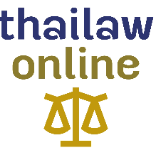Why nobody talks about Sap Ing Sith rights and foreigners able to own properties? SUPER COOL
-
Recently Browsing 0 members
- No registered users viewing this page.
-
Topics
-
Popular Contributors
-
Latest posts...
-
0
Fire Destroys Scrapyard in Pathum Thani: Suspected Electrical Fault
Pictures from responders. A devastating fire broke out at a scrapyard in the Bueng Kham Proi area of Lam Luk Ka district early on 14 March, destroying a two-rai property. The blaze, which spread rapidly due to the flammable materials stored on site, is believed to have been caused by an electrical short-circuit from a damp circuit breaker. At approximately 08:00, the Bueng Kham Proi Sub-district Administration Organisation, received an emergency call reporting the fire. Over 10 fire trucks from the local municipality and Bueng Kham Proi Sub-district Council were initially dispatched to the scene to combat the flames. The fire engulfed the “Jirawan Junk Shop,” located at 36/25, Moo 10, on a plot of land spanning more than 2 rai. Upon arrival, firefighters found the blaze consuming large piles of plastic materials, which ignited easily, causing the fire to spread quickly. Despite efforts to douse the flames with water, the fire rapidly escalated, causing the steel roof structure to collapse, and the entire building was destroyed in the blaze. Nareth Niem-em, the 36-year-old owner of the shop, explained that heavy rain had fallen overnight, and that on the morning of the fire, his staff had turned on the electrical breaker, likely causing the sparks that led to the blaze. The quick ignition and spread of the fire meant that the workers were unable to control the situation on their own and had to call for emergency assistance. Somchai Trinawong, the district chief of Lam Luk Ka, spoke to local media, stating that, based on initial findings, the fire was likely caused by an electrical short-circuit. He confirmed that the previous night’s rain had made the breakers damp, and that the workers may have inadvertently switched it back on in the morning, causing an electrical surge that led to the rapid outbreak of the fire. Multiple fire trucks from surrounding areas assisted in bringing the blaze under control. Fortunately, no injuries were reported, but the scrapyard and its contents were completely destroyed. Investigations are underway to determine further details regarding the cause of the incident. -- 2025-03-15 -
57
Thailand Chooses Cities for Future Casino Complexes
I still like Nimman and the temples, of course. -
-
524
-
1
Elderly Woman Dies in Motorcycle Crash After Returning from Temple Visit
Apparently, not enough merit was given ...... -
257
Is Trump a Russian Asset, Controlled by Putin
Oh dear, another one for my ignore list. Personal attacks are just boring. Now you can make vacuous posts about p***y grabbing to posters that like suchlike nonsense.
-
-
Popular in The Pub
-
.png.3b3332cc2256ad0edbc2fe9404feeef0.png.8488ab72b8bb2e508209bfe3211b6e08.png)









Recommended Posts
Create an account or sign in to comment
You need to be a member in order to leave a comment
Create an account
Sign up for a new account in our community. It's easy!
Register a new accountSign in
Already have an account? Sign in here.
Sign In Now